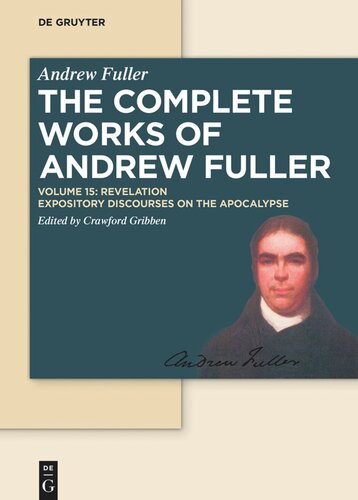

Most ebook files are in PDF format, so you can easily read them using various software such as Foxit Reader or directly on the Google Chrome browser.
Some ebook files are released by publishers in other formats such as .awz, .mobi, .epub, .fb2, etc. You may need to install specific software to read these formats on mobile/PC, such as Calibre.
Please read the tutorial at this link: https://ebookbell.com/faq
We offer FREE conversion to the popular formats you request; however, this may take some time. Therefore, right after payment, please email us, and we will try to provide the service as quickly as possible.
For some exceptional file formats or broken links (if any), please refrain from opening any disputes. Instead, email us first, and we will try to assist within a maximum of 6 hours.
EbookBell Team

4.0
66 reviewsAndrew Fuller's commentary on Revelation (1815) appeared as one of the final statements of his long engagement with biblical apocalyptic writing. Fuller thought through his eschatological commitments as he moved from the high Calvinism of his early ministry to the evangelical Calvinism of his later life. The early influence of Gill - which included an eccentric combination of positions later identified as pre- and post-millennial - gave way to an evangelical piety strongly influenced by the writings of Jonathan Edwards. Fuller was deeply influenced by Edwards' support for evangelical revival, and by his expectation that the gospel would sweep victoriously across the globe. Fuller's commentary on Revelation, published in the year following his death, offers access to one of his last series of sermons, to his mature understanding of how divine providence was unfolding the mysteries of biblical prophecy, and to the robust post-millennial optimism that did so much to support his enthusiasm for global missionary work.